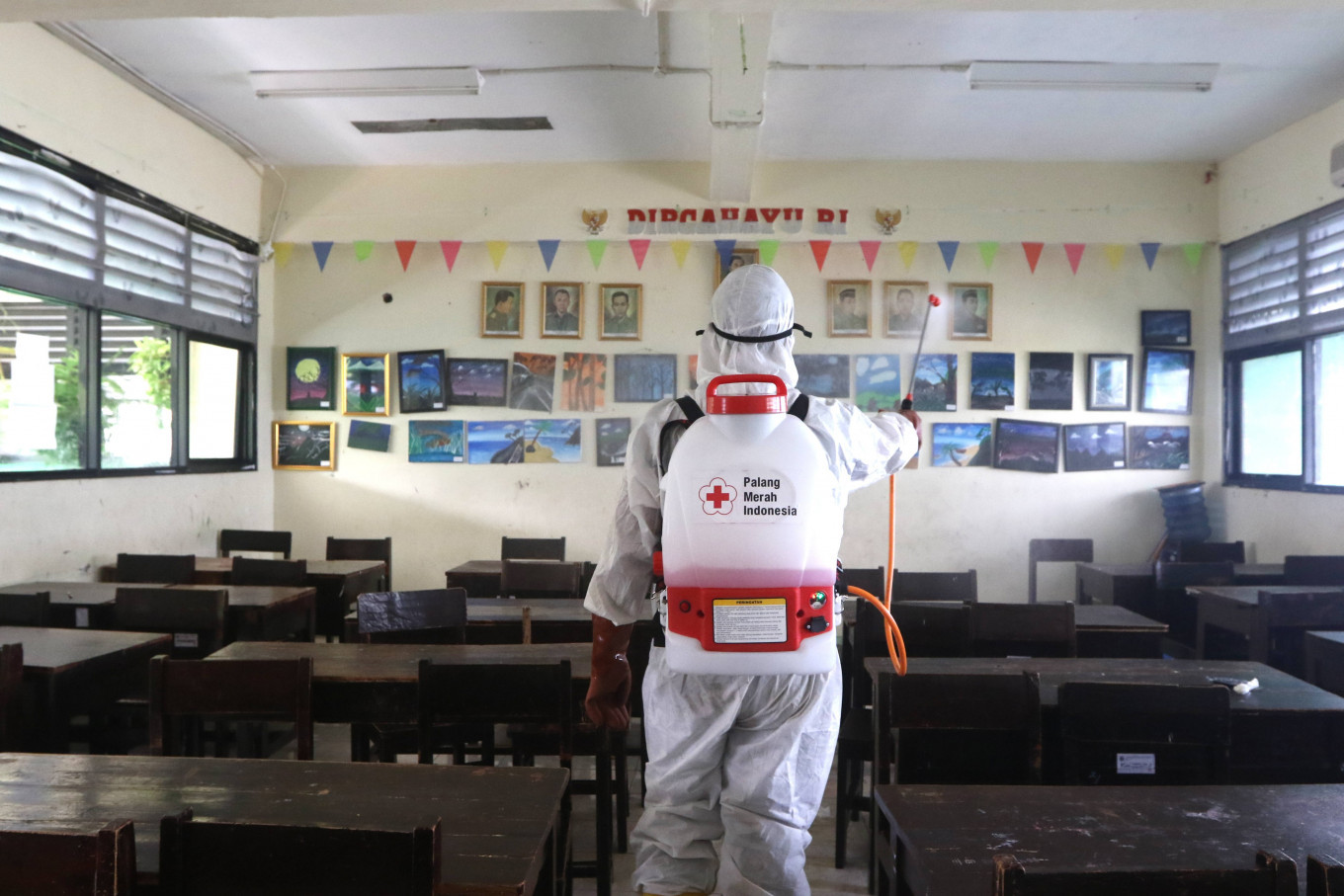Popular Reads
Top Results
Can't find what you're looking for?
View all search resultsPopular Reads
Top Results
Can't find what you're looking for?
View all search resultsFamilies, health workers face stigma as fear overtakes communities
In Persahabatan General Hospital in East Jakarta, medical workers, including nurses and doctors who treat COVID-19 patients, have reportedly been kicked out of boarding houses near the hospital.
Change text size
Gift Premium Articles
to Anyone
T
he ongoing COVID-19 pandemic has created tension and panic in a number of communities in Indonesia as residents scramble to distance themselves from perceived risks of infection.
This week in Medan, North Sumatra, residents attempted to prevent the burial a suspected COVID-19 victim in a Muslim cemetery even though the family had followed the safety procedures set by health authorities.
The late patient was a civil servant who was previously admitted to Haji Adam Malik General Hospital in Medan. He died on Wednesday afternoon after two days of medical treatment.
“We, the residents, will not accept a coronavirus body being buried here. We do not want ambulances passing through the streets [of our neighborhoods],” said a resident in a video posted on YouTube on Wednesday, with other locals shouting nearby.
The neighborhood head, identified only as Budi, said the body had arrived at the cemetery at about 9 p.m. on Wednesday, with several medical officers in full protective equipment.
“[The residents] just refused it. They knew it was [a coronavirus victim] and they objected to him being buried there,” Budi said as quoted by kompas.com on Thursday.
Budi said he noticed that the officers in charge of burying the body were so “overwhelmed” by the rejection that one of them almost passed out. They eventually succeeded in burying the body at about midnight.
Read also: Palang Hitam runs 24/7 to care for Jakarta's dead during COVID-19 outbreak
In Persahabatan General Hospital in East Jakarta, medical workers, including nurses and doctors who treat COVID-19 patients, have reportedly been kicked out of boarding houses near the hospital.
During a recent Kompas TV interview, Indonesian Nurses Association (PPNI) chair Harif Fadhillah said people feared that medical workers could be at risk of transmitting the virus.
Unable to find other places to stay, some medical workers had to stay at the hospital. The hospital management eventually found a new place for them to live and provided a shuttle service to and from the residence.
In Bogor, West Java, a 26-year-old resident was surprised to discover that his personal medical records, which designated him as a patient under monitoring for COVID-19, had been leaked to the public.
It is unclear who was responsible for the leak.
More surprisingly, a widely circulated screenshot of an Excel document listed him as a confirmed case of COVID-19. This was news to the patient. He was confused about what to do and where to report, and his neighbors pressured him to give some clarification.
“Do you know what hurt me the most? When my nephews could not socialize with others because people said their uncle at home had the coronavirus,” the patient wrote on his Twitter account on Monday, which then went viral.
Read also: Govt partners with hotels to house medical workers
People thought to have COVID-19 and their close contacts have experienced social rejection since the country’s first cases were detected. Numerous failures to protect personal data have exacerbated the situation.
After President Joko “Jokowi” Widodo announced Indonesia’s first two confirmed cases on March 2, a leaked report showing their complete identities and misinformation about their private lives circulated on social media.
Residents who lived in the same housing complex faced immediate rejections including from their employers, who prohibited them from coming to work until they provided a “coronavirus-free” letter from the authorities, the patients’ neighbor said.
Stigma is more dangerous than the disease itself, World Health Organization (WHO) chief Tedros Adhanom Ghebreyesus said in early March, just when the disease appeared to be spreading more rapidly outside China than inside it.
"Stigma, to be honest, is more dangerous than the virus itself. Let's really underline that. Stigma is the most dangerous enemy," he told a news briefing in Geneva at that time, Reuters reported.
He said the fight against the coronavirus should become a bridge for peace, adding, "I think we have a common enemy now.”










